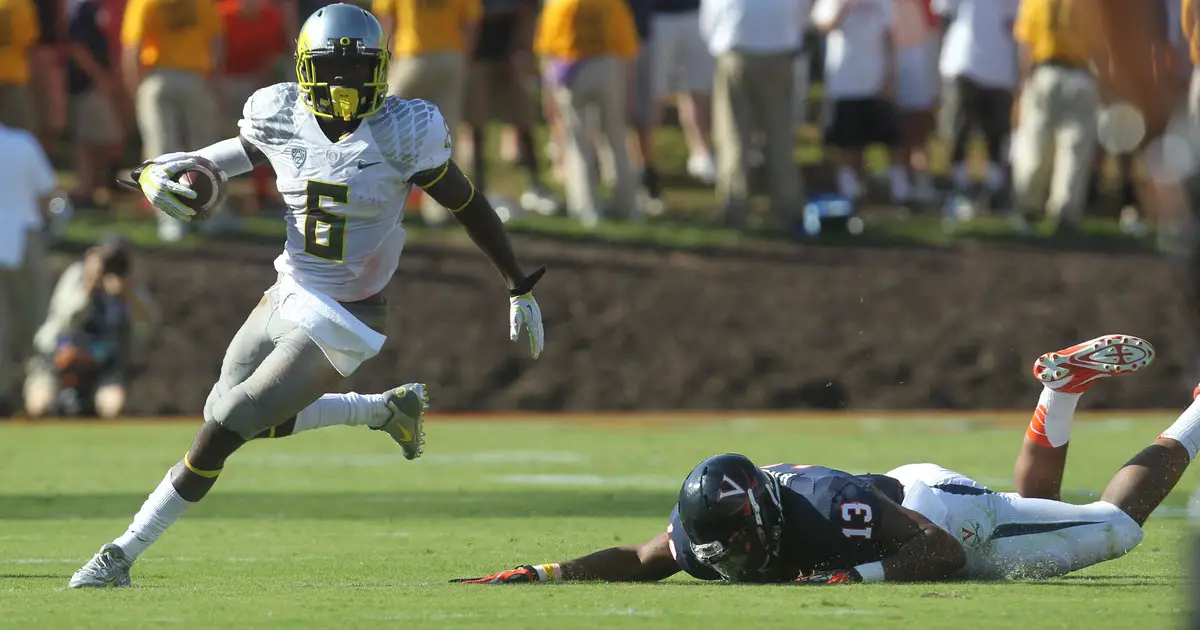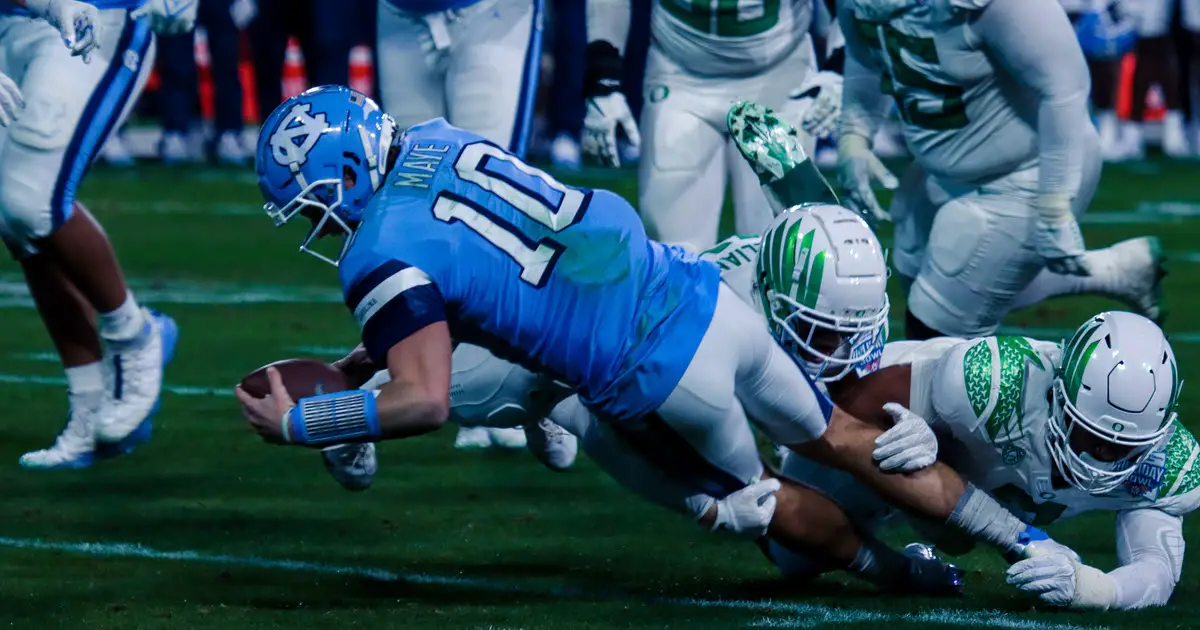Last year I wrote an article about the Coming College Football Schism where there will be two conferences that are composed of the haves and the remaining conferences’ have-nots. That is already happening; it resulted in the Big 12 becoming a second-rate power with the loss of Texas and Oklahoma, which in turn caused the Big 12 to become a pawn of Fox and ESPN in the demise of the Pac-12. The B1G followed Fox’s lead and grabbed USC and UCLA from the Pac-12 and aided in ushering in the collapse of the west coast conference when it took Oregon and Washington.
The Pac-12 is dead. Even if it’s saved by an injection of Group-of-Five schools, the conference isn’t going to look anything like it will this year, its final year of life. With the death of the Pac-12 we are getting a clear picture as to what the future of College Football is going to look like and it will be dictated by College Football’s New Overlords. Mr. FishDuck took time away from his fun studying the NFL odds to discuss the future of Oregon’s upcoming “former” conference with me.
Unsurprisingly, the ACC is next up in conference realignment as they are the last conference with major programs that do not belong to the B1G or SEC. The ACC’s own demise is following the same pattern that led to the Pac-12’s. ACC has some major football programs in Florida State, Clemson and Miami, and some traditional basketball schools in Syracuse and UNC. All these universities are going to be targets for conference realignment for either of the power conferences.
Financial Pressures On Major Programs
Many of these leaders of the ACC are already unhappy with their current media deal, which according to the Daily Tar Heel, is about $23 million per school. This puts the ACC at roughly the same media payout as the Pac-12 was receiving per school. There are, of course, some significant differences — the largest one being the length of contract. The ACC’s media contract doesn’t expire until 2036 and because of this the ACC has been insulated from conference realignment so far.
Just like the Pac-12, there are many schools within the ACC who believe they deserve a media contract payout closer to the B1G and SEC. This, however, is not going to happen. Those large media payouts are reserved for the B1G and SEC alone, and are part of Fox and ESPN’s larger plans to consolidate college football into two mega conferences. These payouts are set high in order to put pressure on other premier programs in other conferences to push them into leaving.

De’Anthony Thomas runs against Virginia in 2013.
Photo By Andrew Shurtleff
This is exactly what happened to the Big 12 with Texas and Oklahoma being offered spots in the SEC for double the media payout, and then again with USC and UCLA when, feeling disgruntled about their own financial situations while sitting in the largest media market on the west coast, they decided to leave the Pac-12 for the B1G. And yet again when Oregon and Washington, when confronted with a poor media deal by the Pac-12, opted to join the B1G as well.
Florida State Is Feeling Uneasy
So is it even a surprise at this point that Florida State is already looking for a way out of the conference? They feel the pressure of falling behind programs that are in the B1G and SEC, and they don’t see any way of catching up unless they leave. This is precisely what Fox and ESPN want in order to carve up the ACC.
However, Florida State’s exit from the ACC isn’t going to be easy because they face an incredibly large buyout. As the ACC’s media deal does not expire until 2036, the exit fee for any school leaving the conference, according to the Athletic , is around $120 million. Beyond this massive exit fee the conference itself will probably engage in lawsuits due to the Grant of Rights contract. The ACC cannot afford to lose a major member to the Power Two.
ESPN is unlikely to help any program leave the ACC as well because they are getting ACC content for incredibly cheap, but don’t think for a second that they wouldn’t welcome Florida State or Clemson into the SEC if they have the opportunity. It is important for ESPN and Fox to put pressure on programs to want to leave for their desired mega conference, but at the same time, neither media company wants to be seen as outwardly enabling these programs leaving.

Jameis Winston fumbles against Oregon in the 2015 Rose Bowl.
Photo By Craig Strobeck
The Dismantling
So let’s pretend the ACC is completely intact by 2036, though unlikely. The ACC will find itself in the same position as the Pac-12 a couple of weeks ago. They will be trying to negotiate for a better media deal, something in the range of $50 million dollars or more, and neither media company is going to give it to them. At best they will be offered the same deal as the Big 12. At this point they will see a mass exodus of teams, some to the SEC and B1G, and probably some to the Big 12. If the ACC is lucky they will be permitted to survive at the same status of the Big 12: a conference of leftovers.
The ACC is in the same place as the Pac-12 was in right before they fell apart. They are at the mercy of media companies that are happy to keep their content for cheap, but would be just as happy if they could pull the conference apart and take all the best pieces for themselves, then discard the rest to lesser conferences.
This is the future of college sports — two mega conferences effectively controlled by their media partners with one conference of lesser powers permitted to survive. We have seen Fox and ESPN destroy the Pac-12, and the same thing is happening now to the ACC. Is anyone able to stop it or is the ACC’s demise inevitable?
David Marsh
Portland, Oregon
Top Photo By Mike Snow

Natalie Liebhaber, the FishDuck.com Volunteer Editor for this article, works in the medical technology industry in SLC, Utah.
Related Articles:

David Marsh is a high school social studies teacher in Portland, Oregon. As a teacher he is known for telling puns to his students who sometimes laugh out of sympathy, and being both eccentric about history and the Ducks.
David graduated from the University of Oregon in 2012 with Majors in: Medieval Studies, Religious Studies, and Geography. David began following Ducks Football after being in a car accident in 2012; finding football something new and exciting to learn about during this difficult time in his life. Now, he cannot see life without Oregon football.


